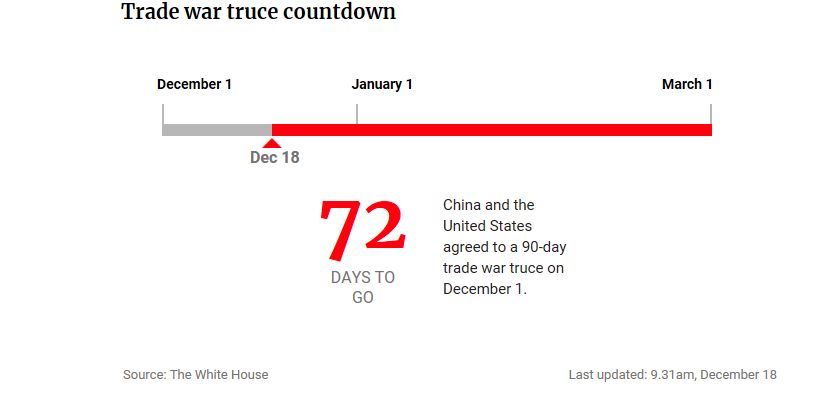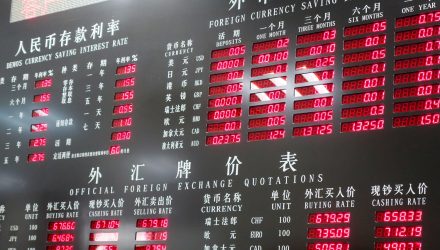Last Friday, capital markets in China were deep in the red as the country reported that industrial output and retail sales growth numbers for November fell short of expectations–a sign that China’s economy is losing its forward momentum. The weaker data also reflects the ramifications of the ongoing trade war with the United States, which could play heavily in trade discussions moving forward as China may be forced to give up more concessions to make a deal.
Day 18 of Ceasefire
U.S. President Donald Trump and Xi agreed to cease fire on their tariff-for-tariff battle. The truce reached at the G-20 Summit didn’t quell investor fears as markets in the U.S. and China have been fretting on the notion that a trade deal can only materialize after lengthy discussions between the two economic superpower.
Furthermore, contentious topics like forced technology transfer and intellectual property could derail negotiations.
Trump and Jinping met at the G-20 Summit in Buenos Aires, putting global markets on pause as the two economic superpowers met to hopefully ameliorate their trade differences. As part of the agreement, both nations agreed to withhold imposing further tariffs on each other for 90 days while they work out a firm, ironclad deal.
With the clock ticking and 18 days into the truce, the markets have been reaching for any type of media olive branch thrown its way in the form of positive news. However, if trade negotiations continue to progress to where a trade deal with permanence is the byproduct, then YINN traders will obviously feel the benefits and conversely for YANG.

For more market trends, visit ETF Trends.








